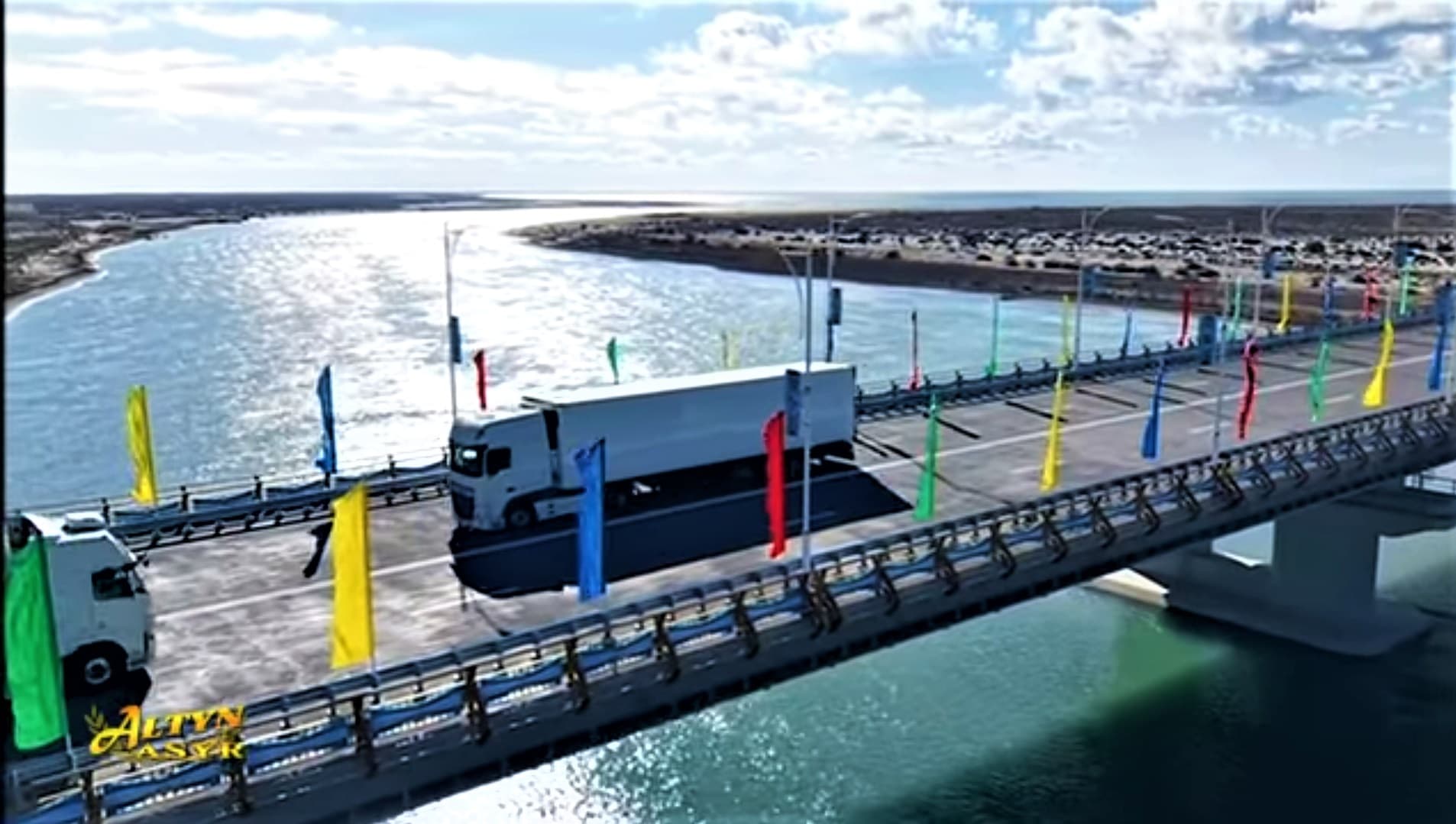
On November 2, Turkmen President Serdar Berdimuhamedov made a working visit to the Balkan Velayat, where he participated in a series of ceremonies marking a new stage in the country's industrial development and the realization of its transit potential. These included the groundbreaking of a large carbamide complex, the start of construction on a section of the Turkmenbashi-Kazakhstan border highway, and the opening of a water treatment facility and a road bridge across Garabogaz Bay.
The celebrations coincided with Construction and Industrial Workers' Day, emphasizing the country's commitment to innovative, export-oriented development.
For example, the head of state attended the groundbreaking of the country's fourth carbamide production complex in the Turkmenbashi Etrap.
The complex is designed to produce 1,155,000 tons of carbamide fertilizer annually, and will also produce 2,000 tons of ammonia per day for feedstock. A world-class consortium is involved in the construction: Mitsubishi Corporation (Japan) and Gap Inşaat (Turkey).
It will utilize cutting-edge technologies from leading European and Asian companies: ammonia from Denmark's Topsoe, carbamide synthesis from Italy's Saipem, and carbamide production from Germany's Thyssenkrupp.
The new plant will not only make a significant contribution to the chemical industry and food security, but will also create over a thousand new jobs and strengthen Turkmenistan's export potential.
The commissioning of a modern highway bridge across Garabogaz Bay and the start of construction on the adjacent highway section were also significant events.
The bridge, built with the participation of Turkmen specialists and international partners, is 354 meters long and 21 meters wide.
The Turkmenbashi-Garabogaz-Kazakhstan border highway will be 207 kilometers long. This four-lane highway, equipped with modern barriers and video surveillance systems, is designed to handle up to 14,000 vehicles per day.
These road infrastructure facilities do more than simply connect the western and northern regions of Turkmenistan. They will also be part of the Central Asian road system linking Iran, Turkmenistan, and Kazakhstan, providing cost-effective transportation from Russia to India and significantly increasing cargo turnover at the Turkmenbashi International Seaport.
As part of the President's working visit, the ceremonial opening of a water treatment facility in the Esenguly district also took place. The facility, equipped with state-of-the-art equipment from European companies, is capable of producing 20,000 cubic meters of clean drinking water from seawater per day.
Thus, the Balkan region is becoming a platform for the implementation of large-scale initiatives combining industrial growth, transit integration, and improved quality of life, confirming Turkmenistan's commitment to sustainable development and the well-being of its people.
ORIENT
